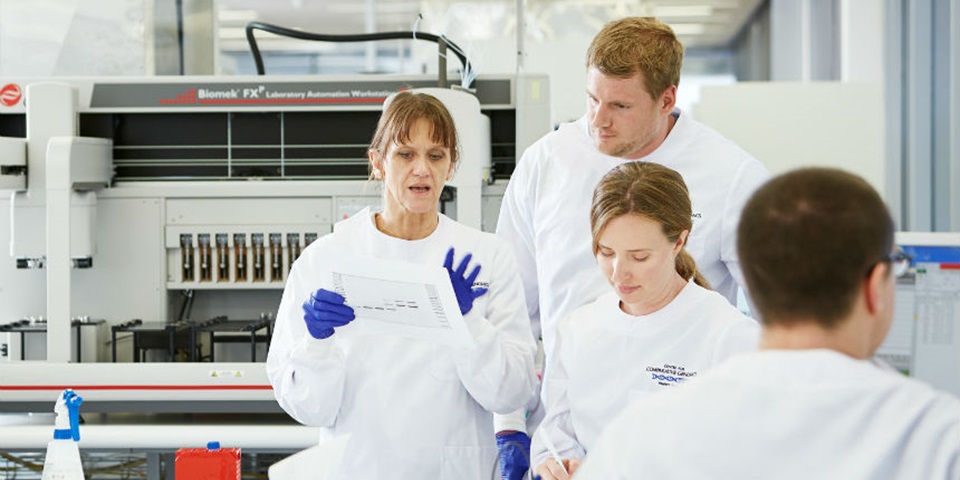News
Centre heralds a new frontier – the precision medicine revolution

A new medical research centre focused on precision medicine aims to transform healthcare on a scale unseen since the introduction of antibiotics, delivering a longer and better quality of life to millions of people with life-threatening diseases.
Internationally-recognised scientist Professor Steve Wilton leads a team of world-leading researchers at the Centre for Molecular Medicine and Innovative Therapeutics (CMMIT) that will develop innovative treatments for serious health conditions such as Duchenne muscular dystrophy, motor neurone disease, Parkinson’s disease, multiple sclerosis and blood disorders.
A joint venture between Murdoch University and the Perron Institute, the CMMIT brings together scientists and clinicians from different fields of expertise to focus on the unique molecular and genetic makeup of individuals. This personalised approach is designed to ensure that a person receives the right treatment at the right time.
A personalised approach
Professor Wilton, Director of the CMMIT, jointly leads a research team with Professor Sue Fletcher which developed Exondys 51, a genetic drug that overcomes the most common type of gene mutation that causes Duchenne muscular dystrophy.
Exondys 51, developed at the Perron Institute and approved by the U.S. Food and Drug Administration (FDA) in 2016, revolutionised the treatment of this devastating muscle-wasting disease. It has resulted in patients who would otherwise be in wheelchairs at the age of 12 still being able to walk into their late teens and beyond.
Professors Wilton and Fletcher have developed a panel of drugs like Exondys 51 to address other mutations that cause Duchenne muscular dystrophy with the aim of being able to treat most forms of the disease. Two of these drugs in advanced Phase 3 trials overseas are expected to receive FDA approval over the coming months, opening up the possibility of trials in Australia within the next year.
Professor Wilton said the challenge for the future was to develop therapies to treat individuals with a variety of different diseases.
“Precision medicine has the potential to transform healthcare on a scale equivalent to the way antibiotics transformed the fight against infectious diseases,” he said.
“The Centre’s goal is to extend the benefits of precision medicine by bringing together scientists and clinicians from diverse backgrounds to focus on potential applications for a number of serious diseases.
“The concept behind precision medicine is simple. It’s about designing a treatment that specifically targets the genetic makeup and other unique features of individual patients as a way of improving effectiveness and lessening side-effects,” Professor Wilton said.
“Doing this, however, is far from simple.”
A joint initiative
Murdoch University Vice Chancellor Eeva Leinonen said the CMMIT showed an enduring commitment to excellence in health and medical research and would build on Murdoch and the Perron Institute’s strengths in tackling rare and complex diseases.
“The Centre provides an opportunity for us to emerge as a genuine leader in the field of precision medicine,” Professor Leinonen said.
Professor Alan Robson AO, Chair of the Perron Institute Board, said the Centre would enable Murdoch University and the Perron Institute to collaborate more effectively with partners around the world.
“This Centre will greatly expand our capacity to develop precision medical approaches that have the potential to change millions of lives in a truly significant way,” Professor Robson said.
“New and exciting partnerships with industry partners in Australia and beyond will open up as the Centre brings a new range of medical techniques to the world”.
News
Centre heralds a new frontier – the precision medicine revolution
Posted on
Topics